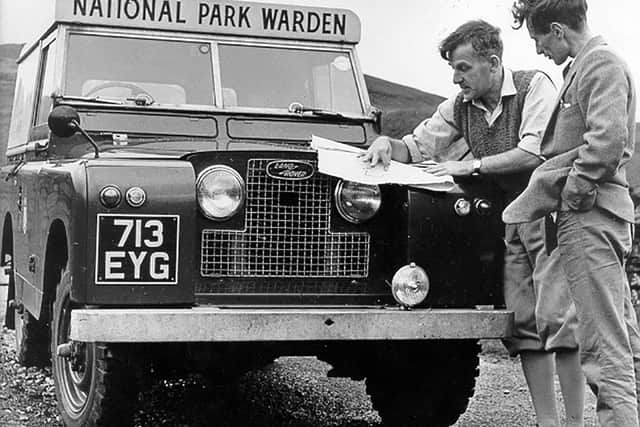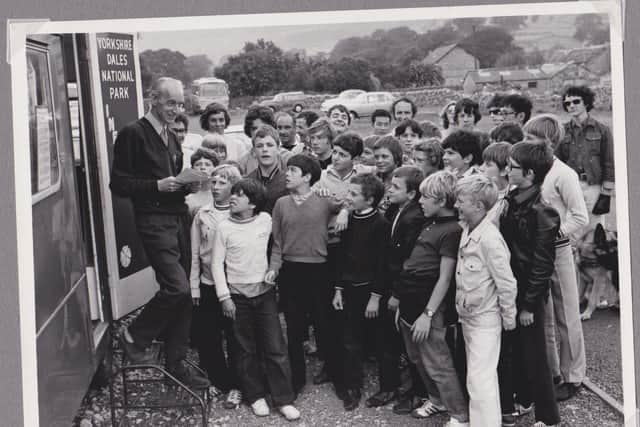The story of how the creation of the Yorkshire Dales in the 1950s nearly didn't happen over fears it would 'drive farmers to madness'
But he was persuaded to overcome his objections, an entertaining new history of the authority reveals.
"Guardian of the Dales” tells the story of the NPA’s triumphs and tribulations over the past 68 years.
Advertisement
Hide AdAdvertisement
Hide AdFeaturing vintage photography, maps and archive news stories, it captures the personal recollections of some of the people involved in developing the park.


The first two “guardians” were wardens Wilf Proctor, in the West Riding, and Norman Crossley, in the North Riding, supported by an army of volunteers.
“The authority as it is now only began in 1974 with the first National Park officer Richard Harvey and a young, inexperienced team,” says author Nigel Watson, who has penned countless corporate histories of bodies including Lloyd’s Register and York’s Shepherd Group. “At first they were in temporary accommodation in Leyburn – they had an attic and two cupboards.
"It was part of what was then North Yorkshire County Council and North Yorkshire was very possessive of the park authority and didn’t want it to get too uppity.
Advertisement
Hide AdAdvertisement
Hide Ad"The early years were riven with rows with the county council. Relations were never particularly harmonious until the park finally cut its ties and became independent in 1997. It didn’t help the authority either that it was the planning authority which tended to divert attention from all the other things it was trying to achieve – quarrying in particular for years was a source of regular controversy.”


Another subject still debated endlessly, was local occupancy housing. Just last week North Yorkshire became the country’s first area to adopt a mandatory 100 per cent council tax premium for second homes as part of efforts to tackle the area’s housing crisis. "Even as early as the mid 1980s there were lengthy debates”, said Mr Watson.
The author says the foot and mouth outbreak of 2001, which saw the Dales closed to tourists, changed perceptions. “The Park worked very closely with farmers to make sure the disease didn’t spread. It made people realise probably for the first time how dependent the Dales were on visitors – it made people realise the value they bought to the rural economy.”
One person Mr Watson would like to see more recognition of is the “father of the National Parks”. John Dower, lived in Kirkby Malham, and produced the first post-war official report setting out the vision of how to preserve an “extensive area of beautiful and relatively wild country” for the public’s benefit. Apart from a plaque in Malham youth hostel, there isn’t a memorial to him in the Dales. Copies are available at any National Park Visitor Centre and online.
